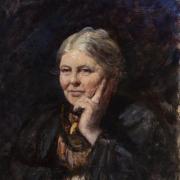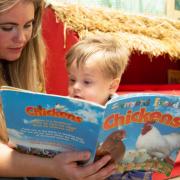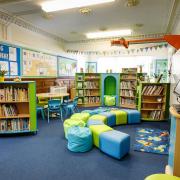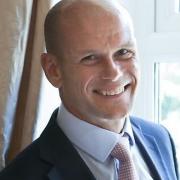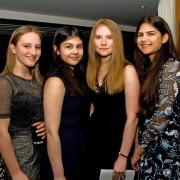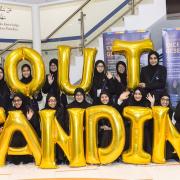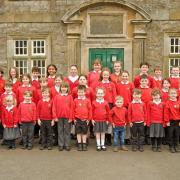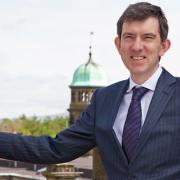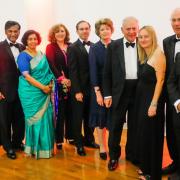Children as young as three are learning Mandarin at a school that values consistency and tradition as well as modern teaching methods. Roger Borrell reports Photography by Glynn Ward

It is safe to assume that Emily Singleton would struggle to recognise the school she founded with just three pupils back in 1923. She would be particularly surprised to find three and four-year-olds learning Mandarin.
In those 93 years the hugely successful Westholme School has grown across three different sites in rural surroundings just outside Blackburn with 800 children aged from three months to 18 years. However, there are aspects of the modern school that Miss Singleton would recognise with some satisfaction.
‘The school still has a family feel. It has a strong sense of community and that ethos that has spanned more than 90 years,’ says Lynne Horner, only the fifth person to occupy the Principal’s office.
By all accounts Miss Singleton was a modest woman and a great supporter of women’s rights. Her passion for the Suffragettes - more by promoting equality through education than the more dramatic forms of protest – is echoed in the’ school uniforms of purple and green, the colours adopted by the Pankhursts and their supporters.
‘I think the fact I’m only the fifth Head since 1923 demonstrates a sense of belonging that has always been at the core of whatever we do,’ adds Mrs Horner. Another sign of continuity is the fact Miss Singleton’s nephew maintains his links with the school and the Chairman of the Governors is a former pupil as was his predecessor.
The school teaches boys and girls separately between the ages of seven and 16 with the sexes mixing for activities such as music and drama. Westholme’s Sixth Form will start admitting boys from September. Learning apart but mixing socially and for certain activities seems to provide the best of both worlds and is a popular option with parents and many educationalists.
‘There is a lot in the media about the boys and girls learning in different ways but we don’t stick to stereotypes,’ says Mrs Horner, who is now in her third year as Principal.
‘At Westholme we don’t believe there is any such thing as a typical student and if there was teaching them would be extremely dull,’ she says. ‘It’s exciting because every child is different.
‘We want students leaving here to be mature, happy, grounded and well-educated with the best results they are able to achieve. But we also want them to have good inter-personal skills so they can take a positive approach to life.
‘I believe parents and the school can be proud because our young people are fulfilling their potential.’
Mrs Horner was born on the Wirral and was Head for seven years at Abbey Gate College in Chester. She studied history and PE at university, with a passion for netball, lacrosse, cricket, skiing, rugby and tennis.
‘Sport is an important part of the curriculum and we have students who excel in the subject. Just this past week, our boys won the Burnley Rugby Festival. ‘We also have successful teams in badminton, netball and athletics. But everyone gets to participate – we don’t just concentrate on the elite students. Sport can be a very positive way of teaching teamwork.
‘I am really passionate about students being engaged with learning. There is a really broad curriculum but we try to make sure we have something that makes us stand out. For instance, the three and four-year-olds in our Pre School are learning Mandarin and they love it. We are always looking for things that inspire, engage and motivate.’
Pupils come from a wide catchment area across the north west – places like Lancaster, Wigan, Bolton and even across the border into Skipton. ‘We are in a very central location and close to road networks and, these days, parents are prepared to travel,’ says Mrs Horner.
Is she worried by reports that state schools are improving so much that they threaten the independent sector? ‘Not at all. It’s fantastic that state schools are improving. We aren’t on the defensive. It’s wonderful that we are doing the best for our children. In an ideal world, schools of all types would be striving to be the very best.
‘We have the breadth of education to really develop the individual and we say they shouldn’t be afraid to explore not just the areas where they are creative but those areas where they might struggle or believe they have a weakness.
‘We encourage them to face up to the areas where they are not so good. We want them to enjoy the experience of improving. There is a joy to learning and we never want them to leave thinking they haven’t made the best of the opportunities they’ve been given.
‘This is a very special place to work and that makes it a special place to learn. What we do so well is take a child and give them opportunities and develop them so they leave here with so much more than just good results. Education is a precious gift and we take it seriously.’




